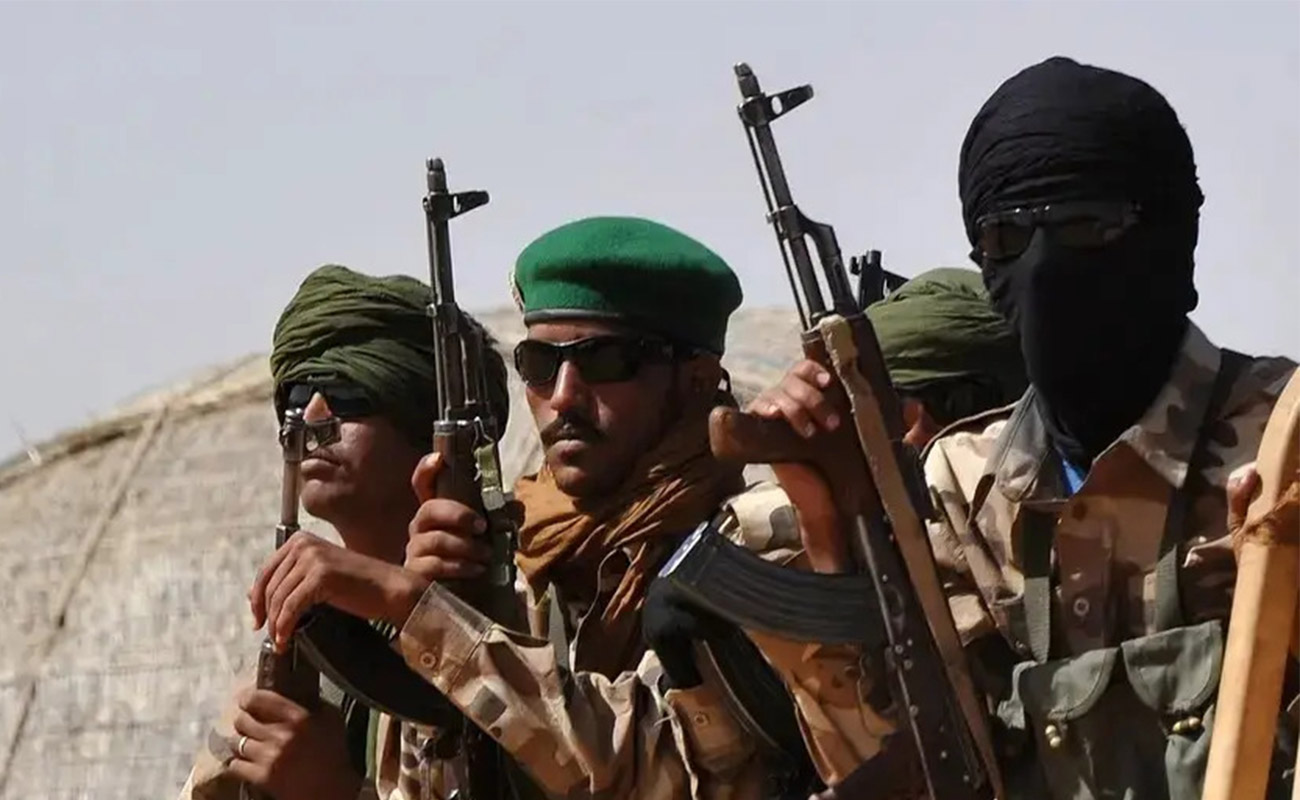
By Adam Abass
The Malian junta seized power in 2020 and fully took control of the government in a counter-coup in 2021, displacing the transitional government. Since then, relations between the junta and the separatist Tuareg rebels in the north have deteriorated. The Tuareg secessionist forces, once aligned with Islamist groups in the country, have been leading the fight against the Malian government for the autonomy of the northern region for decades. However, a peace agreement was reached in 2015, mediated by Algeria and supported by the UN mission in Mali, thus freezing the conflict. As hope for the implementation of the deal diminishes, concerns of escalation between both sides are reignited.
Nevertheless, the Junta expelled the UN mission, the main intermediary of the peace accord, ultimately leading to the collapse of the peace efforts. Most concerning is the launch of a full-scale military offensive, backed by Russia’s Wagner group, against the Tuareg rebels to reclaim control of the northern region and the subsequent withdrawal of the junta from the agreement. The offensive is relatively successful as the military controls the separatist stronghold of Kidal and has ramped up drone strikes against the group, recently targeting Tuareg leaders reportedly killing 8 of them, including Fahad Ag Almahmoud, a prominent Tuareg figure.
The targeted drone strike on the Tuareg leaders is the first time the Junta has launched an attack against the rebel leadership. On one hand, this showcases the junta’s willingness to continue the fight against the group despite setbacks, but it also uncovers a new trend. How this will shape the future of the conflict and the country’s security situation moving forward remains concerning.
Malian military stalled offensive:
The withdrawal of the UN forces from the northern region at the request of the Malian military and the subsequent control of the vacant UN bases by the separatist group led to renewed hostilities on both sides. The junta’s commitment to take control of the northern region reached its climax with the launch of a military offensive to retake Kidal, the separatist stronghold. In late 2023, the Malian military, alongside Wagner group forces, took control of Kidal, marking a major military success since the junta took power. After the victory in Kidal, the junta continued its military onslaught in the north to retake other strategic areas.
However, despite the initial success in Kidal and continued support from Russia’s Wagner group, the junta suffered a heavy defeat. In mid-2024, an ambush by jihadist groups and rebel forces reportedly killed at least 80 Wagner group forces and around 40 Malian soldiers in Tinzaouaten, a border area with Algeria. Most recently, another attack on a Wagner Malian military convoy resulted in the death of at least 6 Wagner group forces. These numerous
defeats have cast doubt on the junta’s efforts to reclaim the northern territory and might prompt the Wagner group to consider scaling down involvement in the region.
Rebels and Jihadist groups cooperation:
The collapse of the peace agreement, the intense military efforts, and Wagner’s involvement marked by rights abuse against the local population have led to alleged cooperation between Jihadist groups affiliated with Al-Qaida and the Tuareg rebels. Historical families and cultural ties, and most importantly, the perception of the Malian Junta in Bamako and Wagner as a common enemy, have made rebel-jihadist cooperation much easier. While both sides have denied cooperation in attacks against government forces, sources have reported cooperation in multiple attacks, including the Tinzaouaten ambush.
The alleged cooperation has made the offensive in the north difficult for the junta to sustain, as rebels and jihadists continue to exploit Wagner-Malian forces’ crimes against communities to justify their action. Additionally, the junta’s unwillingness to engage in reconciliation and negotiation process with the separatist group has stifled military efforts in the north. Most concerning is the frequent use of drone strikes, which have resulted in significant collateral damage.
New Trends:
Following the July attack against Wagner and Malian forces, the junta has conducted multiple drone strikes on rebel locations, particularly in the Tinzaouaten area. However, most of these strikes have resulted in civilian casualties, with civilians often bearing the brunt of the conflict, moreover, the drone strike has not eased the military operation on the ground. The recent targeting of the Tuareg leaders indicates a shift in the junta’s operational strategy, limiting ground troops operations while focusing on intensifying drone strikes. The junta will potentially continue to rely on drone operations in the longer term to ease pressure on its ground troops, particularly its Wagner partners.
In conclusion, the increasing use of drone strikes indiscriminately targeting civilians and the killing of the Tuareg leaders reveals two critical points that will shape the country’s future. First, civilian casualties in drone strikes will continue to erode local trust in the junta’s ability to provide security. Jihadist groups will likely capitalize on this distrust to fuel resentment against the state and grow their ranks. Secondly, while this is the first targeted operation against rebel leaders, it will not diminish the separatist rebel strength in conducting attacks on the state. Instead, it may strengthen the group’s resolve to fight the junta. Lastly, the security situation in the country will remain fragile for the foreseeable future, as the junta strategy in tackling the security threat from both the rebel group and jihadists appears to worsen the situation rather than alleviate it.
